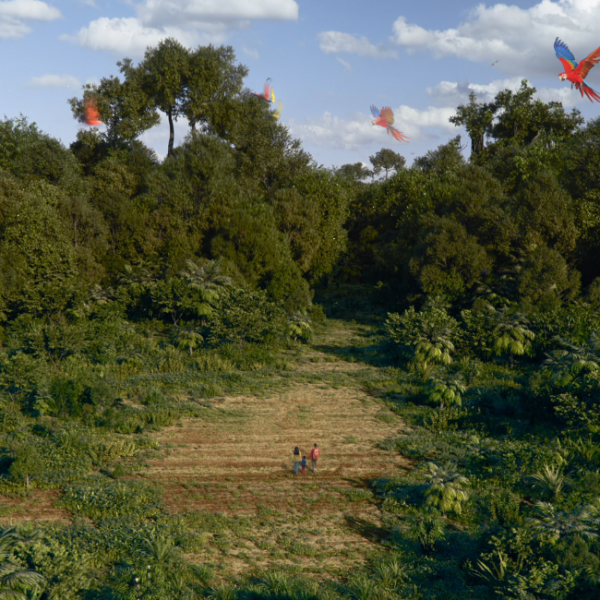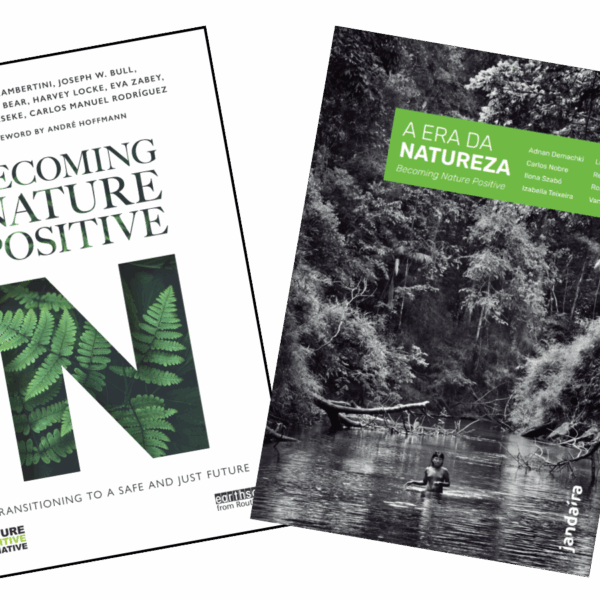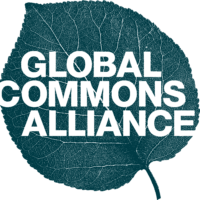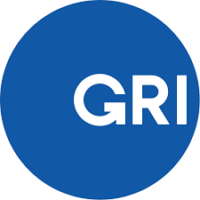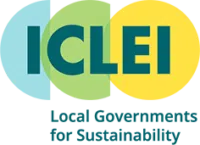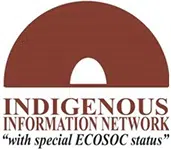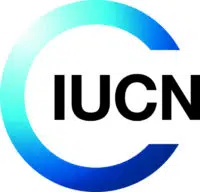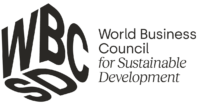
Nature Positive Initiative launches global piloting programme
Next step to test draft state of nature metrics for terrestrial ecosystems. The Initiative sees ANCA, BirdLife, GRI, IUCN, The Nature Conservancy, TNFD and WBCSD partnering with businesses across sectors, including agriculture, energy, forestry, finance, manufacturing and mining, to test the new framework.
London, 7 May 2025: The Nature Positive Initiative today announced the launch of its global piloting programme to test the draft state of nature metrics, a vital step forward to help key actors address the nature crisis. Over thirty businesses and financial institutions across 32 countries and in six sectors have committed to test the practicality of a new, unified set of metrics, helping to finalize a standardized approach to measuring progress towards the nature-positive global goal to halt and reverse nature loss by 2030.
The draft metrics, which include both ecosystem and species indicators, aim to provide a practical and scientifically credible way for organizations to measure their impacts on biodiversity and nature-positive outcomes. The metrics aim to accelerate real action to halt and reverse nature loss by 2030 and promote continued recovery, by filling a gap in how organizations monitor and report their impact on nature as well as nature-positive contributions, supporting them in target-setting, project monitoring, strategy development and disclosure.
Marco Lambertini, Convener of the Nature Positive Initiative, commented: “Unlike climate change, where progress is tracked using global temperatures and greenhouse gas levels, we currently lack a universal way to measure nature’s health and our progress towards the recently agreed Nature Positive goal: halt and reverse biodiversity loss.
Businesses, like everyone, rely on nature – but they’re also the main contributors to its decline. To build business resilience, drive action, accountability and recognition, we need metrics that allow companies and investors to assess nature impacts, dependencies, risks and opportunities, leading to credible nature-positive outcomes and contributions. Companies in this piloting programme will, for the first time, apply consistent metrics to track whether their actions are contributing to improving the state of nature, in other words, to a future with more nature, not less.”
Members of the Nature Positive Initiative – a diverse alliance of 27 of the world’s largest nature conservation organizations, sustainable business platforms, standard-setting organizations, academia, Indigenous and local governments networks – will work with major companies across key sectors, including agriculture, energy, forestry, finance, manufacturing and mining, to pilot the aligned State of Nature Metrics. Businesses and financial institutions will assess elements of metric performance, accessibility and affordability, helping to shape the future of reporting on nature, while receiving hands-on support from the Nature Positive Initiative’s member organizations. Ernst & Young and The Biodiversity Consultancy will provide consultancy support.
Once tested, the aim is for the metrics to then be embedded into existing frameworks and standards with leading organizations such as the Taskforce on Nature-related Financial Disclosures (TNFD),the Global Reporting Initiative (GRI) and Science-Based Targets Network (SBTN), helping to simplify and align how businesses and financial institutions report on their impact on nature. To prepare for this TNFD is partnering with 15 organizations and GRI with 10.
Tony Goldner, CEO, TNFD, comments: “As part of a broader programme of pilot testing this year, TNFD is delighted to be supporting the Nature Positive Initiative with pilot testing of their proposed state of nature metrics. Subject to the outcome of pilot testing, these are potentially important inputs into the TNFD’s metrics architecture alongside the dependency, impact, risk and opportunity metrics we have already published as part of our recommendations and sector guidance.”
The piloting programme follows extensive consultation with over 700 stakeholders worldwide, including conservation organizations, business and finance coalitions, standard bodies and Indigenous knowledge holders. From an initial landscape audit of more than 600 existing metrics, the Nature Positive Initiative developed a minimum set of viable metrics that balance scientific credibility with practical applicability.
The final set of state of nature metrics is expected to be ready for widespread adoption in 2026, following the completion of the pilot program, which runs from May through November 2025.
Companies and organizations that wish to engage with the Nature Positive Initiative and stay up to date on the latest updates on the metrics can join the Nature Positive Forum. By joining the forum, they will be part of a network of over 200 leading companies and organizations that are committed to the nature-positive definition, and will have the opportunity to attend invite-only webinars as the piloting progresses.
Additional quotes from pilot partners:
Dorothy Maseke, Head of the African Natural Capital Alliance Secretariat: “Robust and relevant metrics are essential to integrating nature into financial decision-making. That is why at the African Natural Capital Alliance, we are supporting the Nature Positive Initiative’s state of nature data metrics. Convergence around scientifically credible, fit-for-purpose indicators is crucial if institutions are to accurately quantify nature-related risks and value natural capital, both of which are necessary if they are to mobilise investment at scale.”
Martin Harper, CEO, BirdLife International: “BirdLife is happy to be working with several companies to test run the draft state of nature metrics in the 2025 pilot and ensure that these metrics are practical enough to apply in a wide range of ecosystems. As one of the core members of the Nature Positive Initiative we have been involved in the process to align state of nature metrics since the beginning. It is really important we work with all sectors and across the supply chain in order to make effective, impactful and lasting changes to halt and reverse nature loss for a nature-positive future.”
Robin Hodess, CEO, GRI: “Biodiversity is one of the most critical challenges of our times – and has a huge relevance for business. Future-fit companies need to be accountable for their impacts on the natural world. The GRI 101 Biodiversity Standard enables organizations to understand and report on their nature-related impacts, which provides the basis for them to take action. We are pleased to join the Nature Positive Initiative’s pilot program for their State of Nature metrics – and are especially excited to have GRI Community members participate.”
Grethel Aguilar, Director General, IUCN: “To deliver the ambitious goals of the Kunming-Montreal Global Biodiversity Framework, we need all of society to step up – and businesses have a particularly vital role to play. The process to define metrics for corporate impacts on biodiversity is a crucial part of that process. At IUCN, we are proud to work alongside Nature Positive Initiative to partner with businesses across sectors, to pilot this unified set of metrics. We are excited to bring tools such as the Species Threat Abatement and Restoration (STAR) metric to the table, to ensure that the right metrics are applied in a robust framework. Through this programme, we can help to equip companies with the tools they need to measure, manage, and accelerate their contributions to a nature-positive future, and empower them to make high-integrity, credible and verifiable progress. Together, we can drive the transformative change needed to halt and reverse nature loss.”
Erin Billman, Executive Director, Science Based Targets Network (SBTN): “The Nature Positive Initiative’s State of Nature Metrics pilot marks an important step toward improving how companies measure and manage their impacts on biodiversity. We’re pleased to be exploring this work in partnership with TNFD, with the goal of jointly piloting these metrics through an integrated approach that combines nature-related disclosures and science-based target setting. The insights from the pilot will be valuable in assessing how these metrics can strengthen SBTN’s measurement system and further support credible corporate action for nature.”
Peter Bakker, President & CEO, World Business Council for Sustainable Development (WBCSD): “The Nature Positive Initiative’s harmonization of nature-related metrics will enable comparisons across companies using consistent datasets, helping to direct financial flows toward the most effective nature-positive solutions. WBCSD will actively support business adoption by guiding some of its members through the pilot testing. Once finalized, these metrics will be integrated into our Nature Action Portal, set to launch at Climate COP30 in November 2025.”
Quotes from consultancy supporters:
Matt Bell, EY Global Climate Change and Sustainability Services Leader: “The scale and speed of nature loss casts dark shadows over the future for many current business models, and its catastrophic consequences for the planet and society cannot go unchecked.
“Part of the problem is that organizations have struggled to understand the impact their actions have on biodiversity, simply because they’ve not had the means to understand the current and future state of nature. But these new metrics, which EY helped to design, hold the promise of a new era. The pilot phase should prove beyond doubt that robust measurement, which drives real transparency and accountability, can spur the action needed to halt – and even reverse – the damage done to the natural world so far.”
Malcolm Starkey, Chief Innovation Officer, The Biodiversity Consultancy: “We are delighted to help advance this initiative by collaborating with companies throughout the pilot programme. Our experience shows that measuring and reporting on nature outcomes equips businesses and financial institutions to integrate nature into decision-making and identify practical actions to avoid risks and capitalize on opportunities. By helping shape standardised, measurable, and trackable approaches, we aim to bridge the gap between ambition and implementation. We are fully committed to working with the Nature Positive Initiative and corporate leaders to halt and reverse biodiversity loss.”
